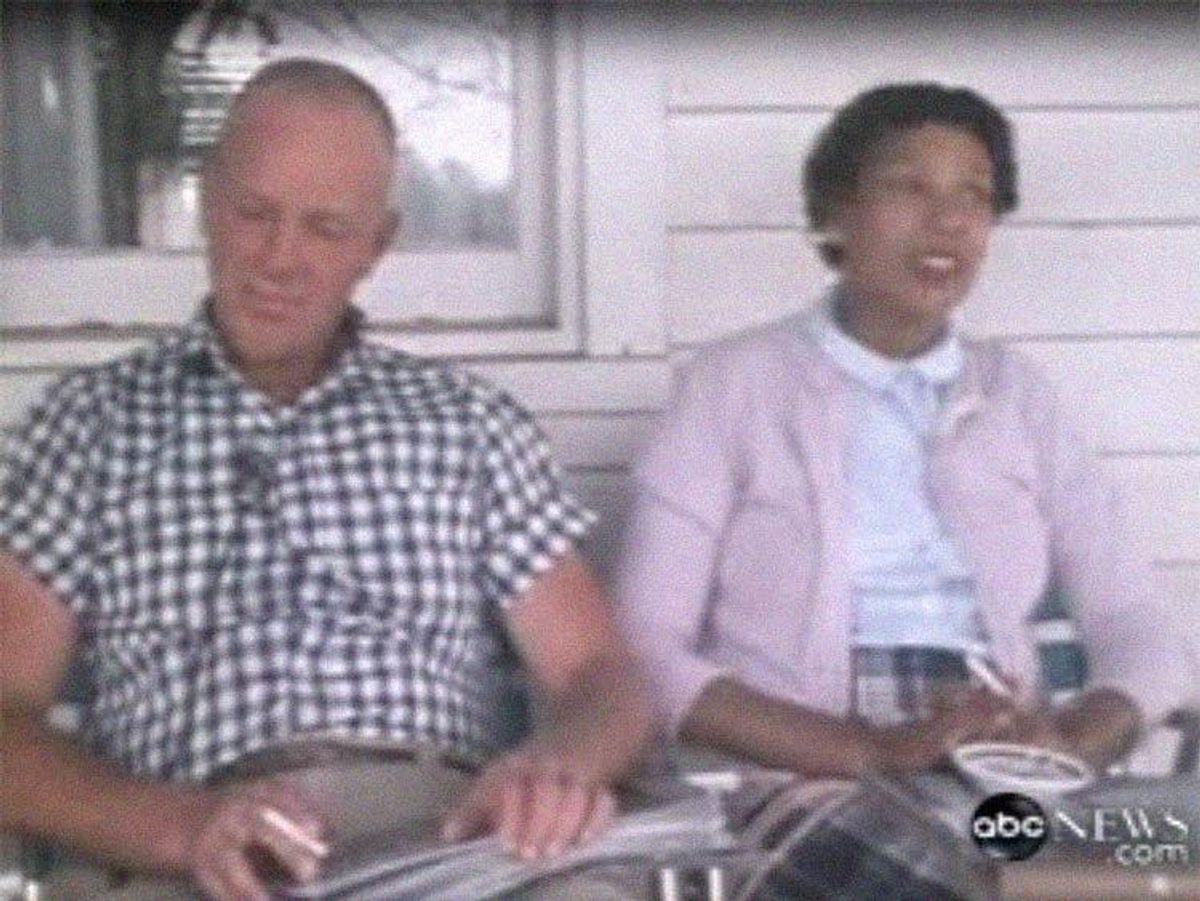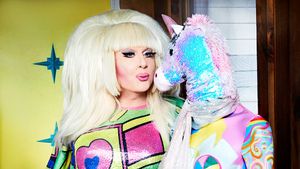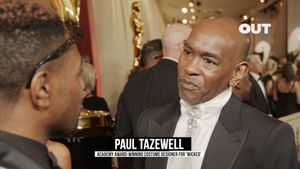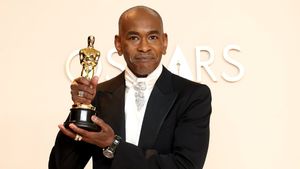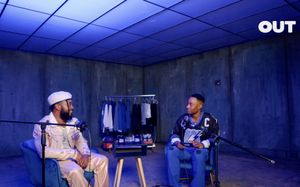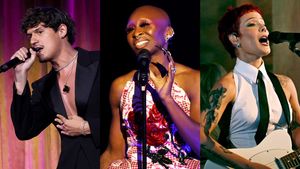It's a timeless story of star-crossed lovers from different places, backgrounds, religions or races. Shakespeare wrote about it prolifically. Movies, TV, novels, and poems are inspired by it. It is boundless and universally understood beyond geographic boundaries and language. Loving is the most powerful emotional connection that doesn't live in reason or choice -- it just is. It's kinetic. Anyone that's ever fallen in love knows how powerless you are to control it. Romeo and Juliet couldn't pass on loving each other and love itself wouldn't allow them to. They faced banishment and ridicule, and ultimately paid the price of a "life" after living to be together. Luckily, we are beyond the days of banishment and suicide for the sake of love. Or are we?
June 12, 2016, is Loving Day, the world's largest multicultural celebration. It is coordinated by the Loving Day Project to remember a love story. For a 13th consecutive year, Loving Day festivities commemorate the June 12, 1967, anniversary of Loving v. Virginia, the Supreme Court decision that ruled in favor of married couple Richard and Mildred Loving, who got the court to reaffirm the very foundation of the right to marry. It also honors and celebrates a more modern-day take on the Shakespeare classic. It's not the tragedy any longer but a story of triumph in the face of discrimination. The Loving story defines loving at its most powerful and prideful. Mildred Jeter and Richard Loving wanted nothing more than to be married and to share in the equal dignity, recognition, and protection that their neighbors, family, and friends had. But their love was put on trial because Mildred was black and Richard was white. It was and still is an ugly chapter of our American history when many states enforced laws of state sanctioned discrimination against interracial marriage, not just affecting black and white couples but all interracial couples.
Living in Virginia and knowing that Washington, D.C., recognized interracial marriages, they decided to leave their state to be married. They returned to Virginia to live their lives in peace until one night, awakened by the police as they slept in their bed, they were arrested and hauled off to jail and ultimately convicted of the "crime" of being married. Rather than serving jail sentences, they accepted the option by the judge to banish themselves from the state for 25 years, but they still had trouble finding housing and work. Increasingly frustrated by not being able to travel together to Virginia to see family, they decided to stand up for their civil rights and were connected with the American Civil Liberties Union, which took on their case pro bono. After nine years of proving what loving truly means, they made their way to the U.S. Supreme Court to affirm that although laws don't dictate love, laws should protect it. In a landmark unanimous Supreme Court decision, Loving v. Virginia cleared the fog of discrimination that they and anyone similarly situated to them were trapped in. Mildred and Richard weren't alone in their struggle, but they alone relieved the struggle of so many like them.
This momentous affirmation of marriage rights still rings true today. For decades we have been witness to the struggles of the LGBT community especially when it comes to marrying the person we love -- who just happens to be a member of the same sex. Standing in line for a marriage license and being denied (just like our co-plaintiffs Kris Perry and Sandy Stier) is not just an affront to our relationship; it is an affront to the meaning of love. And even though we fought for marriage it really wasn't just about marriage. It was simply about human decency, dignity, and respect. Through our involvement in the federal lawsuit to overturn Proposition 8 in California, we focused on moving the hearts and minds of as many people as we could by simply revealing who we are and why we should be treated equally. We could have gone to another state like the Lovings did but we chose not to. We wouldn't have been arrested for being married in another state, but not long ago we could have been simply for being gay and expressing our love. We didn't have to move but know people who did or considered it because they desired the protections of marriage and wanted to start a family.
Being treated like a second-class citizen is a stinging reminder of the history of discrimination in our country, but is coupled by the fortitude gained in understanding civil rights history and just how "the arc of the moral universe is long, but it bends towards justice," as Martin Luther King Jr. so aptly put it. So we pressed on and testified that our love was no different and that building a wall around us to keep us from fully realizing the equality under the protection of our laws was in itself the definition of being un-American. And with the weight of all those that came before us, with the power and strength of all the efforts made by so many, we proved that love really does win in the end. Our lawsuit prevailed and restored marriage equality to the most populous state in the country. More importantly, it dove deep into the history of discrimination, political powerlessness, and the unfair treatment of gay and lesbian people throughout our history. It was often juxtaposed with the Loving case in oral arguments and in the resulting opinions. It helped to create even more momentum to inspire similar cases in every state that needed to make the same affirmation. And sooner than anyone could have ever dreamed, just two years later, the United States Supreme Court ruled in Obergefell v. Hodges that the Fourteenth Amendment really does matter to all Americans and that simply marrying the person you love regardless of their gender is a human right, a civil right, and an American right under the law.
We were lucky to be involved with the effort to win marriage rights in a way that not only enriched our lives but expanded rights to others. But marriage victories don't erase the ongoing discrimination against our community when it comes to employment or housing. We continue to focus on the real goal of full federal equality. Being heterosexual should never be a prerequisite for access to to housing, employment, or public accommodations. Surprisingly, most people think those protections exist in all 50 states when, in fact, they don't in a majority. On the same day you can be married, lose your job, and be kicked out of your home simply for loving the way you do.
Before she died in 2008, Mildred said, "I support the freedom to marry for all. That's what Loving, and loving, are all about." So on this incredible day of honoring the bravery and inspiration of Mildred and Richard Loving we ask you take a moment to count your blessings and reach out to those you love. Share in the celebrations in cities across the country. Tell your story. Talk openly about love as a powerful tool to bring people together, heal wounds, and lift those up eho need it. We will, because at one point our love was perilous in the face of hate but parallels the story of so many like the Lovings. Love doesn't just win in the end -- love rules!

PAUL KATAMI and JEFF ZARRILLO were co-plaintiffs in the Supreme Court case Hollingsworth v. Perry, which restored equal marriage rights in California. They continue their LGBT activism through their weekly podcast, The Husbands, available on UBNRadio.com, iTunes, and iHeartRadio. Follow them on Twitter @katamizarrillo.
